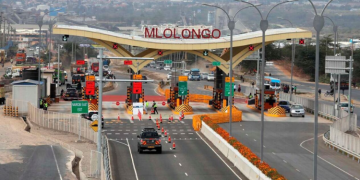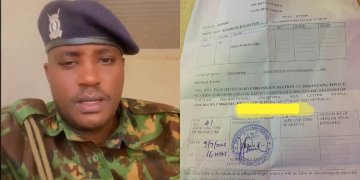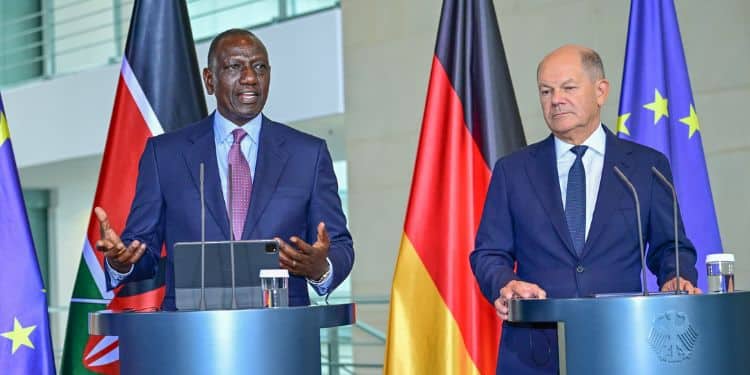Germany has begun the implementation of new controls at all of its land borders as part of a crackdown on migration.
The new controls mean that the German government is placing restrictions on a wide area of free movement known as the Schengen zone.
This comes after Germany and Kenya signed a deal on controlled migration on Friday, September 13, to enable Berlin to open its doors to skilled and semi-skilled Kenyan workers.
Consequently, beginning Monday, September 16, apart from the existing border controls with Austria, Switzerland, the Czech Republic, and Poland, Germany will also have internal border controls with France, Luxembourg, the Netherlands, Belgium and Denmark.
The government’s Interior Minister Nancy Faeser said that the new rules will last for six months initially.

Also Read: Inside New Govt Deal to Create Jobs for Kenyans in Germany
Germany Explains Reason for Border Control
While making the announcement on the border control, Chancellor Olaf Scholz said that it was an attempt to tackle irregular migration and protect the public from threats such as Islamist extremism.
Additionally, he noted that the country has also taken other strict migration measures following a surge in arrivals, especially of people fleeing war and poverty in the Middle East.
The German government has also designed a scheme enabling authorities to reject more migrants directly at German borders.
However, the move has not found a positive reception from other neighboring countries, including Poland.
According to Poland’s Prime Minister Donald Tusk, the introduction of tighter controls at land borders is unacceptable adding that Warsaw will request urgent talks with all countries affected.
Also, both Greece and Austria have warned that they will not accept migrants rejected by Germany.
Germany is part of the Schengen border-free area. Under European Union rules, member states have the ability to temporarily reintroduce border control at internal borders in the event of a serious threat to public policy or internal security.
However, this must be applied as a last resort.
Also Read: Tech Company Creates Database of 5,000 Lies Told by President Ruto
Migration Deal with Kenya
President William Ruto promised Kenyans jobs in Germany after the two countries signed a Comprehensive Agreement on Sharing of Labour, Talent and Mobility in Berlin.
Under the deal, Germany agreed to open the doors to skilled and semi-skilled Kenyan workers in a controlled and targeted labor migration deal.
Further, Germany agreed to ease some of its immigration laws to enable Kenyans to find employment in Europe’s biggest economy.
However, on Saturday, September 14, Germany’s Interior Ministry dismissed a BBC World report, that it would be offering Kenyans 250,000 jobs under the agreement. Instead, the minister clarified that the deal did not include specific job numbers.
On the other hand, while speaking on Sunday, Ruto said the recruitment exercise for the first batch will be held on September 27, 2024, insisting that the program will come to pass.
The Principal Secretary for Diaspora Affairs Roseline Njogu said on Sunday, September 15, that the deal will also provide a framework for cooperation and information exchange on labor mobility, apprenticeship, student training, labor market needs, employment and welfare of workers, readmission, and return.
Follow our WhatsApp Channel for real-time news updates!
https://whatsapp.com/channel/0029VaB3k54HltYFiQ1f2i2C










































































